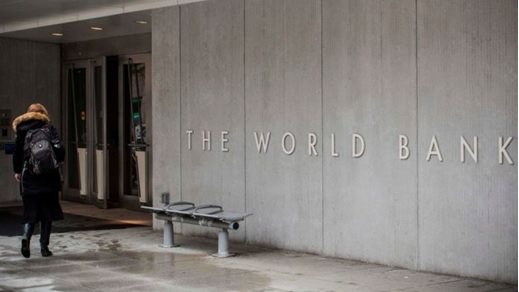WORLD BANK APPROVES 100 MLN USD GRANT FOR SOMALIA’S REFORM EFFORTS
July 28, 2022
The World Bank has approved a 100-million-U.S.-dollar grant to help Somalia’s reform efforts and strengthen fiscal transparency and boost revenue.
“This operation will increase the government’s fiscal space to respond to the drought situation while continuing to support reforms that advance progress toward attaining debt relief,” World Bank Country Manager for Somalia Kristina Svensson said in a statement issued Wednesday evening.

A person enters the building of the Washington-based global development lender, The World Bank Group, in Washington on January 17, 2019. / AFP/Getty Images
The World Bank said the grant will support the continuation of Somalia’s reform efforts in reaching the Completion Point of the Heavily Indebted Poor Countries (HIPC) Initiative when Somalia will be eligible for full and irrevocable debt relief. The lender also said the operation supports the government’s efforts to improve fiscal transparency and increase revenues through the harmonization of customs regimes across the federation and improving the governance of intergovernmental fiscal transfers.
The International Monetary Fund (IMF) and World Bank approved Somalia’s eligibility for the HIPC Initiative on March 25 last year, removing the constraints on economic growth and poverty reduction and providing access to International Development Assistance (IDA) instruments to mitigate the impact of multiple crises in Somalia.
The grant will help create the building blocks for strengthening intergovernmental fiscal cooperation to enhance the ongoing state stabilization agenda critical for stimulating inclusive economic growth by fostering trust and enhancing financial transparency between the federal government and member states, the World Bank said. “Together, these efforts will help improve the government’s ability to continue to provide cash transfers for the country’s poor and most vulnerable, including women, which are a critical coping mechanism amid continuing shocks.”
According to the World Bank, Somalia remains vulnerable to shocks, including repeated cycles of drought and floods, higher commodity prices and the COVID-19 pandemic, which continue to test the resilience of the Somali population.
Source(s): Xinhua News Agency
